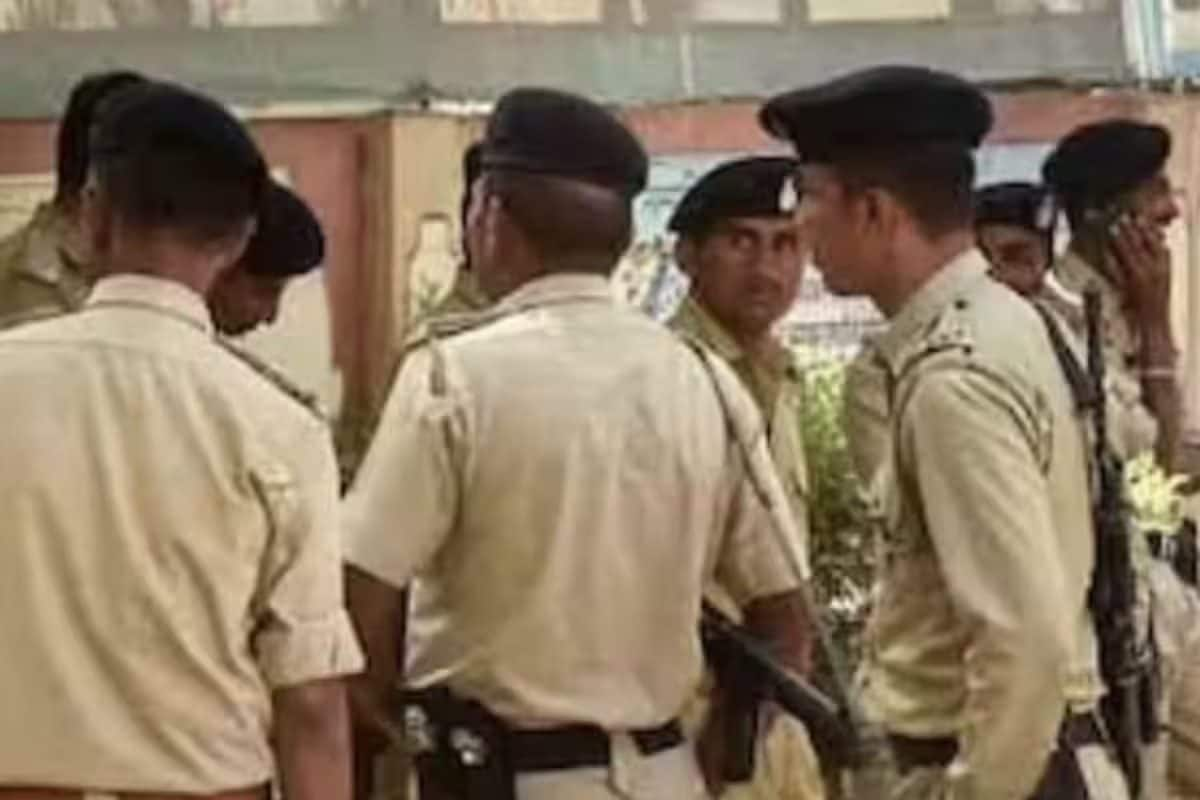Constable Throws Shoe At Senior following a heated altercation at a police station in Gwalior, Madhya Pradesh. The incident, which took place on Monday at the Inderganj police station, involved an on-duty constable who retaliated against his senior officer after the latter allegedly made a vulgar and objectionable remark about the constable’s wife.
According to reports, the senior officer, who serves as the head constable, verbally provoked his subordinate with an inappropriate comment during a conversation. Enraged by the offensive remark, the constable reacted impulsively, removing his shoe and hurling it at the senior in front of other officers. The incident has since garnered significant attention, raising concerns about professionalism and decorum within the police force.
Workplace Conflicts In Law Enforcement
Incidents like the one in Gwalior bring to light the interpersonal challenges and conflicts that can arise in high-pressure workplaces like police stations. Law enforcement officers operate in stressful environments where maintaining discipline is paramount. However, the close-knit and hierarchical nature of police teams can sometimes result in personal disputes spilling into professional settings.
While such altercations are rare, they expose a deeper issue of unresolved workplace tensions. Law enforcement officers, who are tasked with maintaining public order, must also navigate personal relationships and hierarchies within their departments. This creates a complex dynamic where minor disputes can escalate into major confrontations if not handled appropriately.
Legal And Disciplinary Implications
The altercation in Gwalior has prompted an internal investigation by the police department. Both the constable and the senior officer involved may face disciplinary action under departmental rules. Acts of misconduct, such as verbal harassment or violent retaliation, are considered violations of the police code of conduct and can result in penalties ranging from reprimands to suspension or dismissal.
In cases like this, it is crucial to hold all parties accountable for their actions. The senior officer’s alleged vulgar remark highlights the need for strict measures to address verbal harassment within the police force, while the constable’s act of physical retaliation also breaches professional standards.
Disciplinary measures must focus on setting an example to deter similar incidents in the future while addressing the root causes of such conflicts. Departments may consider introducing mediation mechanisms to resolve disputes before they escalate.
The Consequences Of Verbal Harassment In The Workplace
Verbal harassment, particularly comments of a personal or offensive nature, can have serious repercussions in any workplace. In the case of the Gwalior incident, the alleged remark about the constable’s wife not only triggered an emotional reaction but also disrupted the work environment at the police station.
Such behavior can lead to a toxic work culture, eroding trust and respect among colleagues. For law enforcement agencies, where teamwork and mutual respect are essential, incidents of harassment can compromise the effectiveness of the entire team.
Training programs that emphasize workplace ethics, sensitivity, and the consequences of harassment can help mitigate these issues. Regular workshops on conflict resolution and stress management can also equip officers with the tools to handle difficult situations constructively.
Public Reaction To The Incident
The incident at the Inderganj police station has sparked a wave of reactions from the public and on social media. Many sympathize with the constable’s reaction, arguing that the senior officer’s alleged remark was highly inappropriate and unprofessional. Others, however, contend that the constable’s response—throwing a shoe—was equally unacceptable and tarnishes the image of the police force.
The debate highlights the complexities of handling workplace conflicts in public service roles. While personal grievances must be addressed, it is essential to ensure that such issues do not undermine public trust in law enforcement institutions.
The incident has also drawn attention to broader issues of accountability and decorum within the police force. As public servants, police officers are expected to uphold high standards of behavior, both within their teams and in their interactions with the public.
The Role Of Police Departments In Addressing Workplace Conflicts
To prevent incidents like the Gwalior altercation, police departments must adopt proactive measures to address workplace conflicts. This includes creating a culture of openness and accountability where officers feel comfortable reporting grievances without fear of retaliation.
Establishing formal mechanisms for dispute resolution, such as mediation sessions led by neutral third parties, can help de-escalate tensions before they result in confrontations. Departments should also provide regular training sessions on workplace ethics, respect, and professionalism to reinforce the importance of maintaining decorum.
Supervisors and senior officers play a critical role in setting the tone for workplace behavior. By modeling respectful and ethical conduct, they can foster a positive work environment that minimizes the likelihood of conflicts.
The Psychological Impact Of Workplace Stress
The stressful nature of law enforcement work cannot be overlooked when examining incidents like the one in Gwalior. Police officers frequently face challenging situations, including long hours, high-stakes decisions, and exposure to traumatic events. Over time, these stressors can take a toll on mental health, increasing the likelihood of conflicts and emotional outbursts.
To address this, police departments should prioritize mental health support for their officers. This includes providing access to counseling services, organizing stress management workshops, and encouraging open discussions about mental well-being. By addressing the root causes of stress, departments can create a healthier and more productive work environment.
A Call For Reform
The Gwalior shoe-throwing incident serves as a wake-up call for law enforcement agencies across the country. It underscores the urgent need for reforms to address workplace conflicts, promote professionalism, and ensure accountability.
By fostering a culture of respect and collaboration, police departments can prevent similar incidents in the future. This includes implementing clear policies on harassment, providing training on conflict resolution, and offering support for mental health and well-being.
Ultimately, incidents like this highlight the importance of addressing the human side of law enforcement. While officers are tasked with maintaining public order, they are also individuals who navigate complex relationships and emotions within their workplaces. By supporting their personal and professional development, departments can ensure that they are better equipped to serve the public with integrity and respect.



